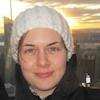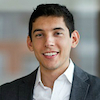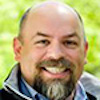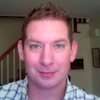 “This morning, I spoke on a panel exclusively on the history of the brain sciences, chaired by John Tresch. There were quite some people in the room and during Q&A I realized that in some aspects we already talked about in class, I have more factual knowledge in / a better understanding of neuroscience than they do!” – Tabea Cornel, PhD candidate in History and Sociology of Science, SAS ’18, writing from a national conference
“This morning, I spoke on a panel exclusively on the history of the brain sciences, chaired by John Tresch. There were quite some people in the room and during Q&A I realized that in some aspects we already talked about in class, I have more factual knowledge in / a better understanding of neuroscience than they do!” – Tabea Cornel, PhD candidate in History and Sociology of Science, SAS ’18, writing from a national conference
 “While the law has spent centuries incorporating behavioral economics and psychological theories into its doctrine from crime and tort to contracts, the findings of neuroscience will inevitably supplement and rewrite how judges and lawyers understand human behavior. SCAN is an intellectually exciting, interdisciplinary, and not overly intimidating plunge into this critical new information.” – Kasey Sousa, Law ’15
“While the law has spent centuries incorporating behavioral economics and psychological theories into its doctrine from crime and tort to contracts, the findings of neuroscience will inevitably supplement and rewrite how judges and lawyers understand human behavior. SCAN is an intellectually exciting, interdisciplinary, and not overly intimidating plunge into this critical new information.” – Kasey Sousa, Law ’15
 “The recognition that we actually do not know as much about how the brain learns as I thought…is actually helpful and validating.
“The recognition that we actually do not know as much about how the brain learns as I thought…is actually helpful and validating.

“Neuroscience has become just another component of my work, no less important than understanding Kant, Aristotle, or Mill. And I have SCAN to thank for that.” –Thomas Noah, PhD candidate in Philosophy, SAS ’16